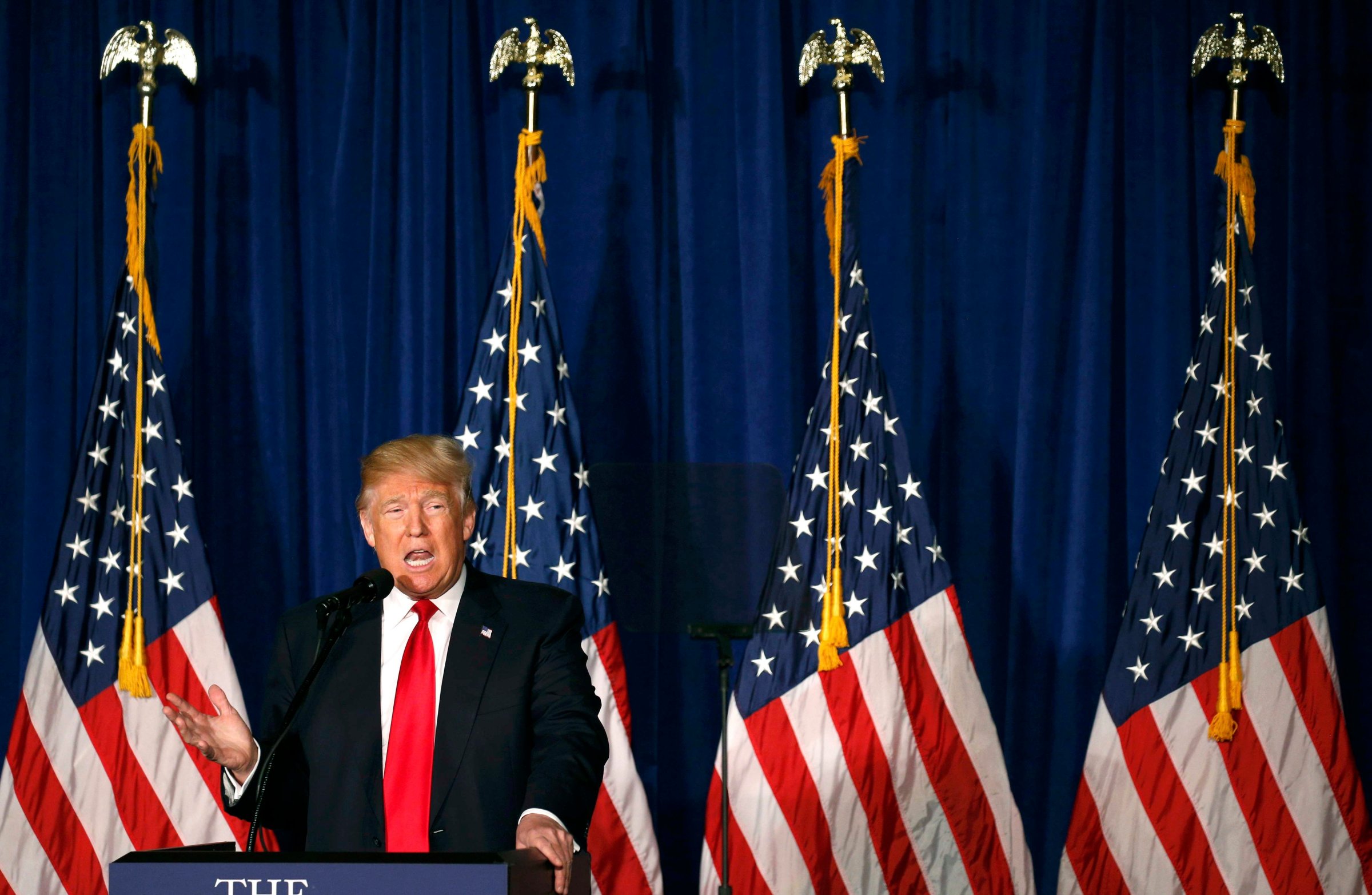
Donald Trump has overturned American politics in ways we can’t even imagine yet. His signature policies—building the wall, banning the Muslims, a trade war with the Chinese and Mexicans—are ridiculous, but his signature style has rendered the status quo in American politics obsolete. All you had to do was watch Hillary Clinton and Trump give their victory speeches last night:
Clinton was boring. She used transparently synthetic political rhetoric: “Instead of building walls, we need to be breaking down barriers” and “We need to lift each other up rather than tear each other down.” These sorts of formulations had passed their sell-by date before Trump had barged into the rutted world of American politics. Now they seem positively antediluvian. Aside from the predictable litany of “rights” she supports—civil, voting, women’s, LGBT—there was nothing of substance and interest here, and that litany seems a bit too facile, as it implies the vast majority of Americans have special identities that require special consideration–and worse, asks nothing in return for those rights and privileges, no personal responsibility, from anyone. She has proposed some interesting programs in this campaign, but nothing to catch the public imagination or change the country’s sluggish trajectory. Her future is to serve as a human default position, a control group, a resting place for those who don’t want Trump. She is a near-perfect embodiment of the status quo.
Trump, on the other hand, is the Brand New American—the hyper-individual, as described by the conservative thinker Yuval Levin, in a soon-to-be-released book called The Fractured Society. Part of the reason why our politicians seem so lame is that they are imprisoned by habits and institutions that have not changed with the times. Trump is part of no institution, not even his party. He mocks the restrictive conventions—acting presidential, being politically correct, being careful about facts and words—that seem have come to seem out-of-step with our narcissistic moment. “I’ve always been very good at math,” Trump says and only us fogies guffaw. He represents all the facile exhibitionist emotions of reality television. Make no mistake: it is his style, not his substance, than have won him his constituency.
And that is the great unanswered question of 2016: How will Donald Trump affect us going forward? I have no prediction about whether he will win or lose in the fall. I honestly don’t know. But I am certain that there are hundreds of young, over-ambitious, would-be politicians out there who are taking lessons from Trump in how to behave, how to make a splash. It will not be hard for them to move on from the relatively staid, marketing-muffled state of our politics: antic egotism is not a quality foreign to most politicians. We seem destined to suffer a loudmouth politics in the years to come…until, at least, something really serious happens, as opposed to our current splay of trumped-up crises, and the absolute need for political sobriety—the need to make real tough life and death decisions—reasserts itself once more.
But, for now, we should be prepared for a devastatingly ugly election, a phony and outlandish exercise from which we will be lucky to recover.
More Must-Reads from TIME
- Cybersecurity Experts Are Sounding the Alarm on DOGE
- Meet the 2025 Women of the Year
- The Harsh Truth About Disability Inclusion
- Why Do More Young Adults Have Cancer?
- Colman Domingo Leads With Radical Love
- How to Get Better at Doing Things Alone
- Michelle Zauner Stares Down the Darkness
Contact us at letters@time.com